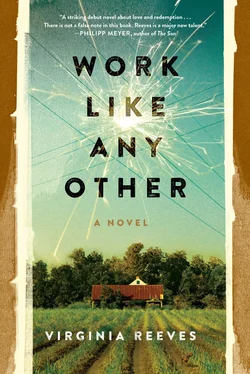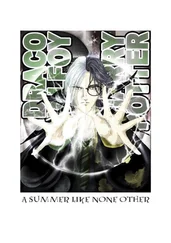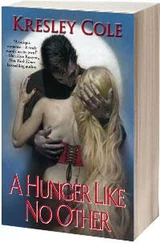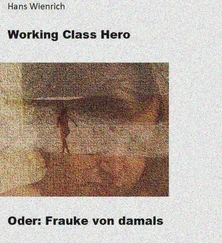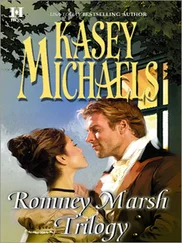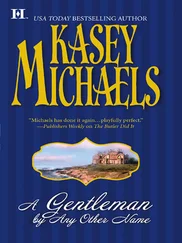She’d awoken days later in a Birmingham hospital room. Roscoe was there, but not the baby.
“Did we lose him?” she’d asked, reaching for her husband’s hand.
“No, no. He’s fine. Nettie’s caring for him while you heal.”
Marie had looked down her body then, the flattening of her waist. She felt the deep aching of her stomach, and her fingers went to the skin, tiptoeing their way under blanket and gown to spread over the great bandages there.
“What’s happened?”
Roscoe had looked pained, a clotted hurt hanging on to his cheeks. “I’ll get the doctor,” he’d said, and though she’d argued, reaching for him, calling him back, he’d left her. He’d passed the burden of that news to someone else, and she’d taken the abandonment deep inside her, a crackly burden like the plants of peanuts or stalks of corn left alone to dry and harden in the absence of their fruit. She could still feel that place, dusty and brittle. It had never refilled.
Marie remembered the doctor’s sallow complexion and tawny hair, his amber eyes and yellowed teeth. He was troubling to look at, and Marie had found her eyes roving far from his face — to the ceiling and then to the window, back to his white coat, a glance to his chin, and then away again.
“Mrs. Martin, your local doctor did great work. You were lucky to be in such qualified hands.”
She’d looked at his chin, the bristles of his sun-dried beard.
“You’re healing wonderfully.”
“From what?”
He’d put a sickly hand on her forearm. “I’m sorry, Mrs. Martin, but there were complications with your son’s birth — damage done to your uterus.” His fingers squeezed her. “We had to remove it.”
Marie felt the pressure of his touch, but couldn’t register his words. Roscoe’s desertion fluttered in her stomach, cornstalks in a breeze, the crisped, itchy dance of dried leaves. It grew wider, more furrows, a great stretch of field.
“What?”
He pressed down, then took his hand away completely. “You won’t be able to have any more children. I’m very sorry. Would you like me to send your husband back in?”
Marie had trained her eyes on the window, the bright sky bleached nearly to white by the sun. “No,” she’d whispered.
The loss of their future children had set them apart, moved them into their respective corners, far from each other’s touch. They couldn’t move together as Wilson’s family did, even if they had tried. The brief years of ease when Roscoe had run his illegal electricity had been false. She had to have known they’d crumble in some way, their future torn from them again. She’d known, and she held this knowledge alongside her own part in it. Unlike Moa and Wilson, she was not innocent. They had taken pieces of each other — Marie and Roscoe — but now they had taken a piece of Wilson. They had taken a part of his family.
Sitting in the silence of her empty kitchen, Marie wanted to talk to Roscoe. She wanted to show him all they owed — to the Grices, to the land, to each other, to their son.
Here, she wanted to say to him, tell me how we repay this.
I’m pacing the yard when the sirens start blazing, and I know to run to the pens. Taylor is there, and Stevens, and a fellow named Michaels.
“Those two,” Taylor says, pointing to the far cage. Jack and Jesper.
“Hey, Jack,” I say. “Hey, Jesper.” To Taylor I say, “Where’s the scent start?”
“Corn. Northwest corner. You boys start with the dogs. I’m getting my horse.”
We set off. Taylor catches up just before we reach the first rows of corn. He whips his mount forward, and we chase after them — man and horse — until we get to the field guard. He holds the man’s bushel bag, and those dogs settle their noses into the burlap, huffing their lips, flushing the scent, those big ears trapping it in their faces. My two lift their heads first and point toward the woods.
The dogs are faster than me, and they buck against my weight. Their voices pitch. They pause to recharge the scent. Here, in this bunch of grasses. There, on that twig. Here, in this fresh footfall in the muddy mess of ground near Cobbs Creek. The dogs try to break from each other, and from me, moving up and down the small bank, but then Jesper splashes into the shallow water, and we follow. The scent is right there, another footprint, and then just ghosting smells. My calves burn. My lungs heave. My emaciated shoulder and arm whine. All of this is too familiar.
We pass the possum oak, and a part of me wants to be chased again, to climb back into its branches, though I know I couldn’t do it now, that I will never again climb a tree.
Stevens and his dogs are still with me.
Taylor’s horse splashes through the water. “I’m following you two,” Taylor shouts. “Michaels’s dogs are heading a different way. Feels like we’re close on this one.”
The dogs don’t tell me that, though. They change when they’re close, their muscles tighter, something steep and tense in their steps. We have a ways to go, their bodies tell me now. Taylor is loud behind us, and suddenly that young Marie falls in at my right. She darts along quickly, her breath calm and even.
The dogs pause for new tastes, then run some more. The leather belt round my waist cuts into my back. The damp I feel could be sweat or blood, warm and cold.
Stevens falls back a bit, but Taylor’s horse is in my ears, the soft felt of the thing’s muzzle drenched in froth flying from its lips, drawn back against the bit and the breath it heaves. “Hup,” Taylor shouts. “Hup, hup!” That breath goes sour, grasses rotting in its guts.
I hear a whisper to watch out. Marie?
“Hup!” Taylor shouts once more, before a great stumble of limbs crashes down, branches breaking under that fortress, sticks crumbling. The horse’s chest hits the ground, then its neck, jaw, lips, nose. The body plows up the dirt, mulch and rubble hitting me. I pull the dogs to a stop, watching as Taylor picks himself up. A gash in his arm drains blood. Another guard comes up behind him, and I’m surprised to see that it’s Beau. He’s gotten here so quickly.
“Go,” Taylor shouts at both of us. “I’m behind you. Go.”
The dogs start pulling. They are disappointed to have stopped at all.
Beau runs next to me, and Marie is next to him, silent and intent. I can feel the nervousness in her, and I hope that Beau’s desire to catch this man who’s run trumps his desire to do me further harm.
Then we are there. We are here. It’s nothing more than a shack, this structure, a forgotten still house, tired boards holding a rusty roof. The dogs are keen on the door. They’re sure. I see it in them, that deep-pressured force.
There’s snuffling behind us, and then Stevens appears behind his dogs.
“You!” Beau points to Stevens. “Give your dogs to Martin and go pound on that door.”
Fear pales Stevens’s face, but he unhooks his dogs’ leads from his belt and helps fasten them to mine. I’m up to five beasts now, and it’s too many. They’ll kill me in their pursuit, I know.
“Get up there, boy,” Beau hisses, slinking back toward the cover of the woods, his gun poised.
Stevens walks up to the shack and raises his fist, pounding it hard against the doorframe, the door too weak to sustain such a blow. Around me, the woods shake. We’ve made our way from the oaks into this thicket of pine, tall and red-barked.
“Boy!” Beau barks. “You best come on out without a stir.” He is all but invisible in the undergrowth.
A scrambling comes from inside, a whine of metal, a scrape. Stevens is turning his head over his shoulder in Beau’s direction when the door pulls back. A man named Hughes stands in the doorway. He’s a regular in the library, like Dean, and he likes books about machines — the cotton gin, the engine, the letterpress. He’s tall, thick in the shoulder and waist, with eyes too big for his face — fearful eyes that put a man to apology or confession, eyes fit for a leader, not a runner. He has a shotgun in his hands, held low at his hip. Before there’s time enough to note its gauge, Stevens is on the ground, a great chunk gone from his right side.
Читать дальше
